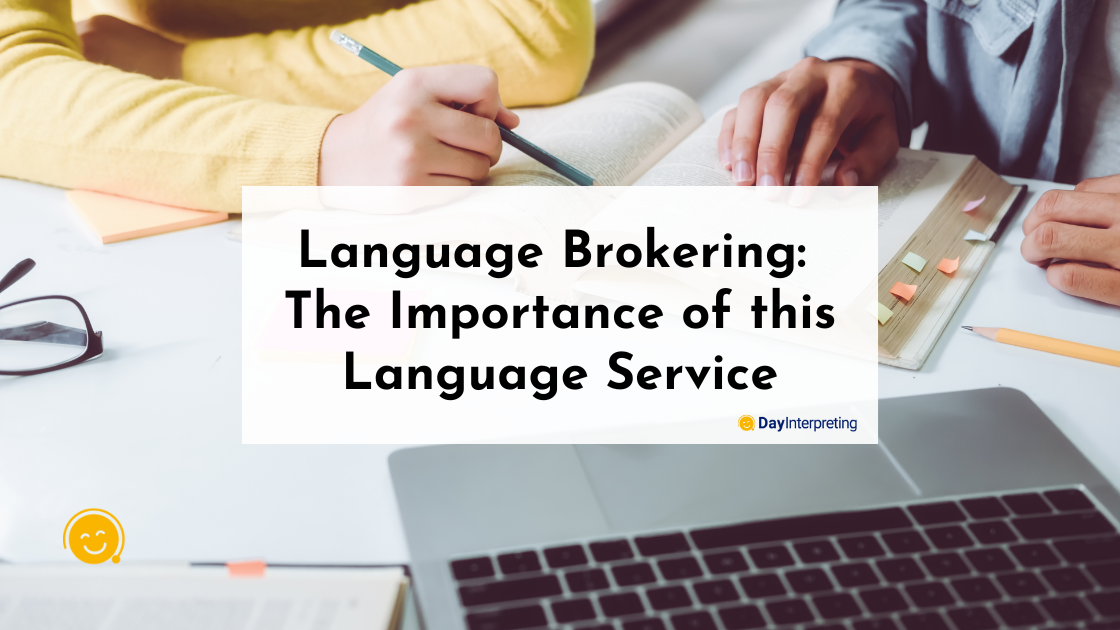Have you ever considered what it’s like to be part of an immigrant family living in a country where most of the family does not speak their native language? That’s exactly why we’re focusing on language brokering today.
In today’s globalized world, with travel and migration being at their highest in history, this sort of situation is far more common than you’d want to think. In the United States, approximately 14% of the population are immigrants born outside of the country. Another statistic shows that approximately 26% of the Us’s immigrant population has children who are born within the United States.
You might be wondering why we’re giving you all these statistics; this is where the title of today’s blog post comes in. Many families depend on their children to be translators and interpreters. In such a case, the children are considered to be language brokers.
Our Day Interpreting post today explores language brokering, what it is, how it works, and how it affects the lives of children who find themselves in these situations.
Let’s get right into it.
What is Language Brokering?
Language brokering involves interpreting and translating for the older family members (who have little understanding of that country’s language) as the child/youth in the family.
The reason why they are called brokers has a lot to do with the fact that as children, they unintentionally become the language interpreters and translators for their parents in particular. The children within these families are usually placed in complex social and business situations because they have to serve as a proxy to help their parents understand what’s going on.
What are the Advantages and Disadvantages of Language Brokering?
Language brokering takes place because a professional interpreter or translator isn’t available to assist. It is also a case where the family that finds themself in such a situation prefers to have someone who is trustworthy to translate and interpret for them. With this in mind, language brokering has advantages and disadvantages, and we’ll explore a few below.
Advantages of Language Brokering
Children/youth are like sponges when it comes to learning a new language and becoming acclimated to the culture of a new country. That said, here are a few advantages of language brokering:
- They’re able to develop their bilingual and bicultural skills
- They assist in acclimatizing their family to their new environment and host country
- The communication skills that these youth have are further developed and their confidence is boosted
- Confidentiality and discretion is developed at a younger age which helps in the future for professional and other sensitive situations
- Interpersonal skills are further developed or improved upon
- They are able to adapt to different environments and operate (in a functional manner) in various settings
- They feel proud of themselves and their abilities in being able to help their family
Disadvantages of Language Brokering
Of course, when there are great advantages to youth being language brokers, this role can also be disadvantages. Here are a few disadvantages that language brokering brings with it.
- Feelings of embarrassment can occur when children misunderstand what is being said and interpret the message in the wrong way for their parents.
- They can become stressed and become anxious in some situations, fearing that they’ll interpret or translate something incorrectly.
- Sometimes, the children/youth that are in these situations are exposed to language and information that may not be suitable for them at their age.
- At times, children as language brokers have to become the ones to help with the decision-making in certain situations. At a young age, that can be a lot of pressure.
Let’s Wrap Up
The term language broker may not be one that is often used, but the task of being a language broker happens on a daily basis. For many children/youths, it is part of their daily life and is considered a normal role.
That said, the role of a language broker is priceless. Especially within the confines of a family that is new to a country; they do not speak their language and need help to get around and get things done.
It is also important to note that language brokers (as children and youth) should not replace professional interpreters and translators. There are so many situations that it is best to seek professional help when conducting business or appointments. This is of course, where Day Interpreting comes in. Our team of professionals is available 24/7 to help you on demand.
By downloading our Day Interpreting app, you gain access to interpreters at the click of a button to help you with any situation. Give it a try today, you’ll be glad you did.





0 Comments